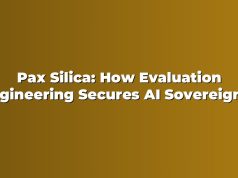As we embark on the uncharted waters of the 21st century, the terrain of government employment is undergoing a seismic shift. Advances in artificial intelligence (AI), machine learning, and automation are not merely nudging; they are elbowing their way into the public sector, prompting a crucial question: How will these technological forces reshape the roles and responsibilities of those who serve the public good?
The answer, while not crystal clear, hinges on a delicate balance between embracing innovation and preserving the core values of public service. This journey is not without its share of obstacles, but it offers a unique opportunity to redefine what government work can and should look like in the digital age.
Technology, when strategically integrated, can streamline operations, enhance service delivery, and empower government employees with new tools and insights. However, its application necessitates thoughtful policy frameworks that govern its use, safeguard privacy, and ensure accountability. As machine learning algorithms and AI begin to undertake tasks traditionally performed by humans, we must critically examine their impact on jobs, skills, and the very nature of work itself.
Policy implications are manifold. Lawmakers and government leaders must navigate the complexities of workforce transformation while maintaining an inclusive approach to employment. The evolution of job descriptions demands not only revised hiring practices but also a commitment to continuous learning and reskilling programs for the existing workforce. The looming question of job displacement must be met with proactive strategies to mitigate the socioeconomic ripple effect.
The crux of the challenge lies in preparing human capital for the jobs that will emerge from the shadows of automation. Government entities must invest in education and training initiatives that equip employees with the digital competencies required for tomorrow’s opportunities. But beyond technical skills, there is a profound need for fostering adaptability, creativity, and emotional intelligence – traits that AI cannot replicate.
In the quest for technological integration, ethical considerations must occupy the front seat. The deployment of AI in public service raises questions about bias, transparency, and the potential for widening societal gaps. It is imperative to adopt inclusive policies that ensure equitable access to government jobs and the benefits of innovation.
Can government institutions lead the charge in innovation without compromising the integrity and security of public service? This balancing act is challenging but not insurmountable. By fostering a culture of continuous innovation, embracing collaborative governance, and investing in human capital, the government can pave the way for a more efficient, responsive, and equitable public sector.
As we delve into these pressing questions, we invite policymakers, public servants, and the citizenry to join the dialogue. Together, we can chart a course that leverages technology as a force for good, ensuring that the government remains an exemplary employer and a bastion of service to the public. The future of government work lies at the nexus of technology, policy, and human capital, and it is ours to shape.
In this ever-evolving digital landscape, let us not lose sight of the core mission of government work: to serve and uplift the society it represents. Technology is merely a tool in this noble endeavor, and it is through our collective wisdom that we will harness its full potential.

























